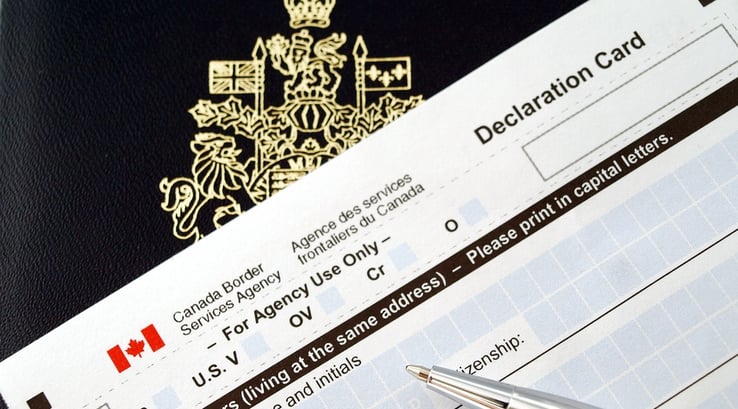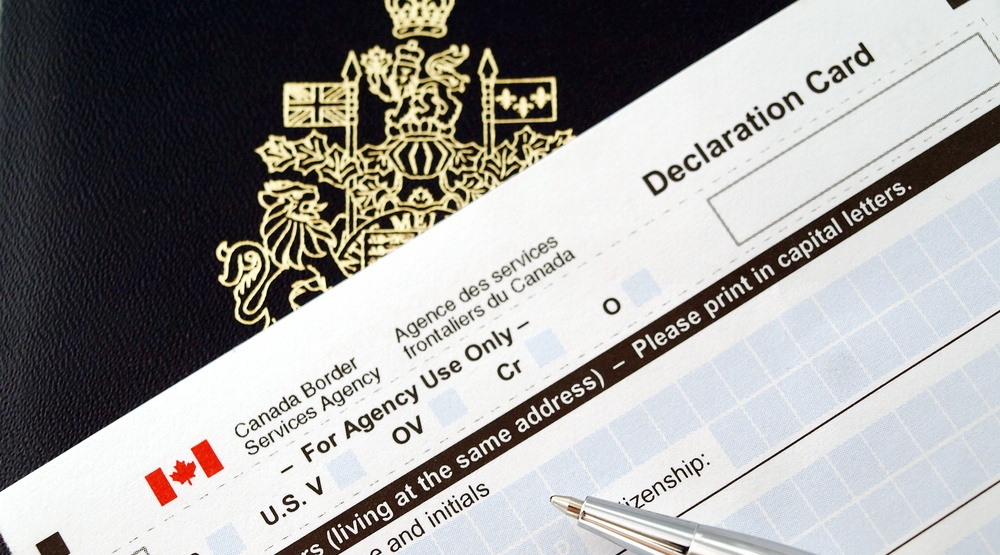When travelling to Canada, it's essential to be aware of the customs regulations and requirements, including the declaration of goods. Canadian Customs requires travellers to declare all goods they are bringing with them to the country, whether for personal or commercial purposes. Failing to declare goods can have serious consequences, including fines, seizure of goods, criminal charges, and denial of entry.
In this blog post, we'll explore the potential consequences of failing to declare goods at Canadian Customs and the penalties you could face.

Fines and Penalties
The most common penalty for failing to declare goods at Canadian Customs is the imposition of a fine. The amount of the fine will depend on the value of the goods that were not declared. For example, if a traveller fails to declare goods worth $500, they may be subject to a fine ranging from $500 to $1,000. Additionally, travellers may face additional penalties, such as the revocation of travel privileges or criminal charges. Repeat offenders may face more severe penalties and even be barred from entering Canada altogether.
Seizure of Goods
Customs and Border Protection officers have the authority to seize goods that are not declared at Canadian Customs. The seizure of goods can be a significant financial loss, particularly if the goods are valuable or necessary for a business operation. The seized goods will be held until the traveller provides documentation and pays the necessary fines and penalties. If the traveller fails to comply with the requirements, the goods may be forfeited, and the traveller may face criminal charges.
Criminal Charges
Failing to declare goods at Canadian Customs can result in criminal charges. The severity of the charges will depend on the nature of the goods and the intention of the traveller. For example, a traveller who fails to declare a small amount of food may only face a minor offence, while a traveller who intentionally smuggles drugs or weapons could face serious criminal charges. The consequences of criminal charges can be severe and can include fines, imprisonment, and a permanent criminal record.
Denial of Entry
Travellers who fail to declare goods at Canadian Customs may also be denied entry into the country. This can have significant consequences for both personal and professional reasons. For instance, a business traveller who is denied entry may be unable to attend an important meeting or conference, resulting in lost opportunities and revenue. The denial of entry can also affect future travel plans to Canada, as it will be noted in the traveller's records and could lead to additional scrutiny in the future.
Tips for Avoiding Consequences
To avoid the consequences of failing to declare goods at Canadian Customs, it's essential to be informed and prepared. Here are some tips to help you avoid potential penalties:
-
-
Know what to declare: Before travelling to Canada, research what goods must be declared and the appropriate values for those goods. You can find this information on the Canadian Border Services Agency website or by contacting a customs broker.
-
Be honest: Always be honest when declaring goods at Canadian Customs. Attempting to conceal or misrepresent goods can result in serious penalties.
-
Keep documentation: Keep all receipts, invoices, and other documentation for the goods you are bringing with you. This documentation will be required if your goods are seized or if you need to pay fines or penalties.
-
Use a customs broker: If you're unsure about the declaration process or the specific requirements for your goods, it's best to seek guidance from a customs broker or Canadian Customs. A customs broker can help ensure that you comply with all regulations and requirements, reducing the risk of penalties.
-
In conclusion, it's crucial to understand the regulations and requirements when travelling to Canada to avoid the potential consequences of failing to declare goods at Canadian Customs. Fines, seizure of goods, criminal charges, and denial of entry can have significant consequences on both personal and professional fronts. To ensure a smooth entry into Canada, be honest and informed about the declaration process, keep all necessary documentation, and seek guidance from customs brokers if necessary. Remember, compliance with Canadian Customs regulations is essential to avoid costly penalties and maintain good standing for future travel plans.
Need help getting your Commercial Shipments into Canada?
Reach out to Clearance by Moto! here to request a Clearance Quote
 (604) 757 2441
(604) 757 2441